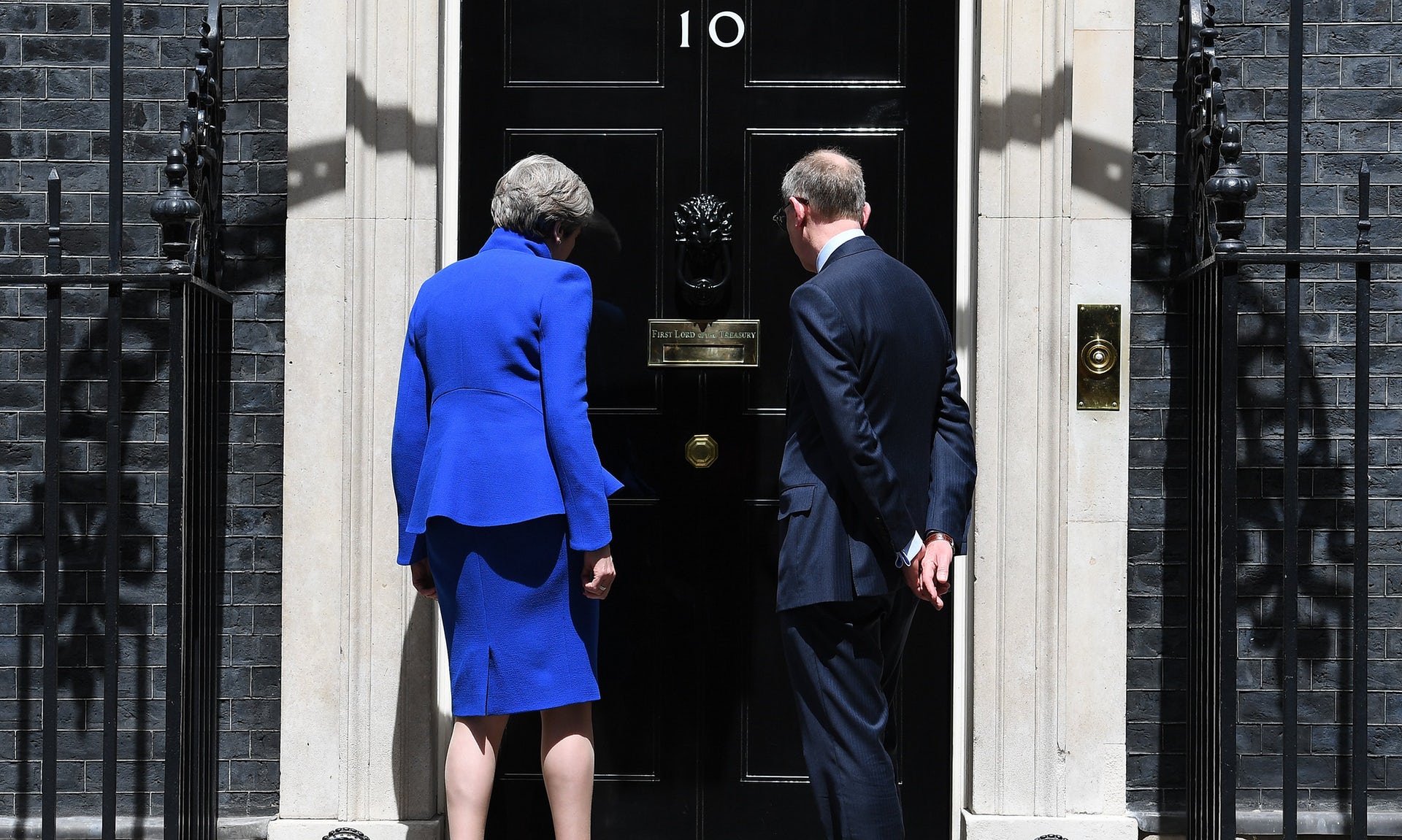an edited version of this column appeared in The Guardian, 9 June 2017, the day after the 2017 General Election.
Most people have heard of the term “detoxification”; it’s a familiar entry in the lexicon of food fads. Detoxing your body isn’t a pleasant process. Like Michael Gove, I recently went full St Jerome and tried purging my gastronomic sins at the spartan Mayr clinic in Austria, where it turns out that giving up coffee, alcohol and sugar does unpleasant things to your colon.
For political nerds, however, “detoxification” has long meant something else. In the wake of the 1997 Labour landslide, Conservatives began to look for explanations for their humiliation at the hands of Tony Blair. Some simply blamed the voters for not knowing what was good for them (as some, such as Crispin Blunt, are doing today). Some muttered darkly about the demonic invincibility of Tony Blair: losing to such a Machiavel was nothing for an honest man to be ashamed of.
Some, however, recognised a larger problem: the Tory party was “toxic”. Voters might agree with its policies. Some might simply vote with them out of self-interest. But no one was actually proud of voting Tory. Section 28, racist campaign posters and a slew of sleaze scandals had seen to that.
Detoxifying the Tory party would prove to be as painful as detoxifying your gut. And like any other cleanse, a short-cut could only ever be self-defeating. Before he moved on to literal detoxes, Gove was one of the few who grasped this instinctively: in 2001 he co-edited an essay collection, A Blue Tomorrow, that addressed the Tories’ enthusiasm gap in depth. In one essay, the pollster Andrew Cooper lamented the “remarkably large number of people who can’t, or won’t, accept the truth of how we are seen by others, or the reality that this means the party must change fundamentally or die”. These included the “Millwall tendency” (“Nobody likes us and we don’t care”); the “flat-earthers” (“people who deny, in the face of all empirical evidence, that the Conservative party is at crisis point”) and “the face-lift faction” (those who advocate cosmetic change). All were standing in the way of detoxification.
Sixteen years and four prime ministers later, Cooper’s three toxic tribes have all left their mark on the Conservative party. Gove may have been the great moderniser hope, but his move to the Department of Education and his obvious delight in antagonising the teaching profession soon transformed him into the Millwall-Tory-in-chief (“the blob don’t like me and I don’t care”). David Cameron, of course, was the “face-lift faction” personified: giving his party a new eco-green logo but still surrounding himself with Old Etonians. As for the flat-earth faction: they are everywhere.
As I wrote a few days ago, knocking on doors for the Tory party only reveals the depth of moral tarnish on the reputation of the Conservative party. (The number of people who raised foxhunting as a make-or-break issue was particularly striking. One woman asked: “It’s not a big thing, but why would you want it back so very much unless you’re quite bloodthirsty?”) But in senior Tory circles, few can acknowledge that the emperor is striding down Matthew Parker Street (where the Conservative party’s campaign headquarters are located), stark naked.
Take, for instance, the dinner I attended 18 months ago, held under Chatham House rules with a cabinet minister known for reformist tendencies. We expected to hear a little about the progress the party still needed to make in winning hearts, as opposed to heads. Instead, the minister was quite clear. “The Tory detoxification process is complete. Only people who like to fret still talk about it.” So much for that, then.
Our dinner guest wasn’t alone. As long ago as 2012, a group of Tories popped up in the press to tell us modernisers to stop fussing. A group calling themselves Conservative Voice complained to the Telegraph: “In recent times, there has been an almost evangelical focus on the ‘modernisation’ or ‘detoxification’ of the Conservative brand. The result has been a growing disconnect between the party leadership and the grassroots, and a loss of clarity, principle and policy direction.” The group’s founders included David Davis and Liam Fox; other signatories were Priti Patel and Dominic Raab.
We’ve heard more about those names in the last year than we have for a long, long time. Theresa May brought Davis and Fox back into government; and despite prior disagreements, she promoted Patel and Raab. She may have once talked the talk on modernisation, but May has presided over a great rejection of the Tory detoxification project. The result – not unlike trying to take a shortcut on a colon detoxification – is today’s electoral mess.
May brought one other person back to her campaign team: Australian strategist Lynton Crosby. Much ink has been spilt elsewhere on the failures of his campaign, but one point needs to be made louder, stronger. After the racist campaign his consultancy company ran against Sadiq Khan on behalf of Zac Goldsmith, Crosby should never have been let near another Conservative campaign. That point is moral, above all. But it’s also strategic. Crosby thrives on the politics of fear, and the British voters have proved they can see through it. Or as one veteran Conservative candidate told me in the early hours of this morning: “Lynton Crosby can f*** off back to Australia and leave his knighthood behind.”
The buck with all this stops with Theresa May. It is impossible for her to remain in No 10, whatever she may think as she struggles to form a coalition government. But her real crime is the people she allowed to flourish at the top of her party. These are the flat-earthers of Tory toxicity, Crosby being chief among them. Perhaps Conservative Campaign Headquarters will finally learn what the rest of us know in our bowels: never abort a detoxification process halfway through.





